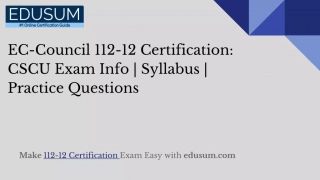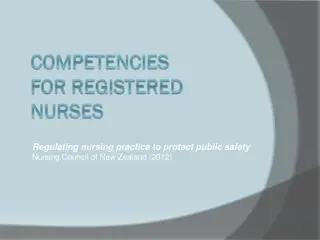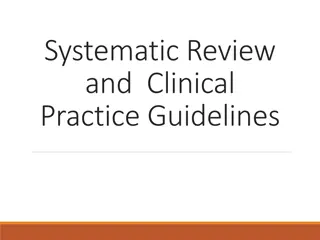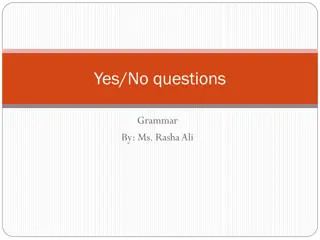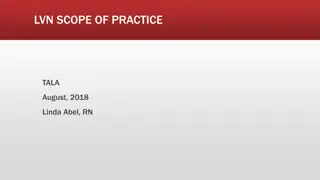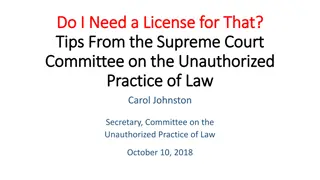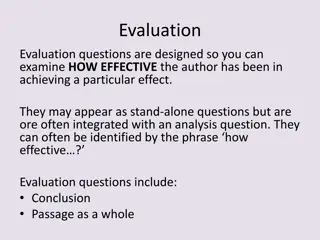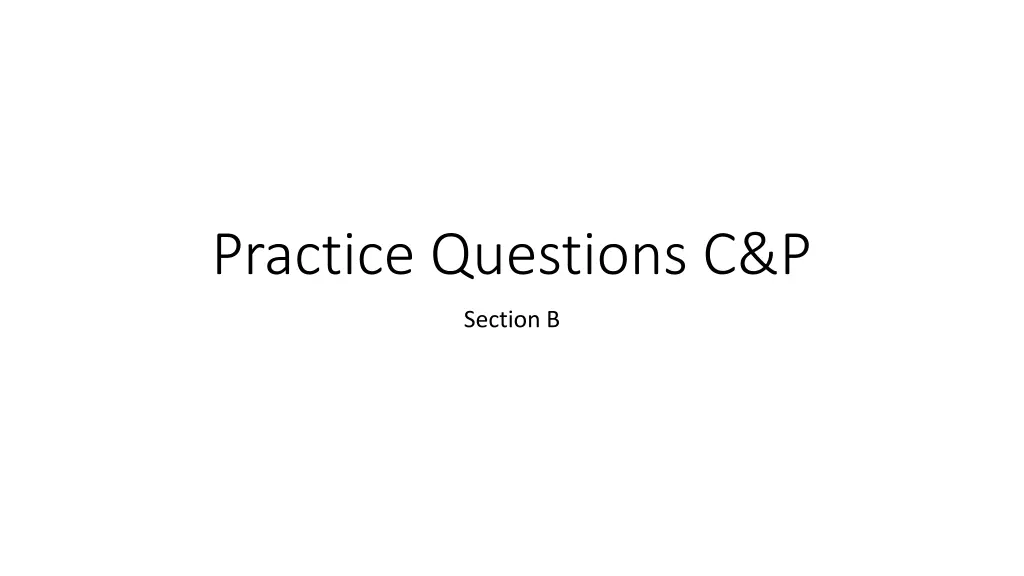
Medieval and Early Modern Crime and Punishment Study Questions
Explore the complexities of crime and punishment in the medieval and early modern periods through a series of thought-provoking questions. Delve into topics such as the influence of the Church, changes in law enforcement, punishments for crimes against authority, and the harsh treatment of vagabonds and witches. Gain insights into the evolution of justice systems from the Norman Conquest to the early 18th century.
Download Presentation

Please find below an Image/Link to download the presentation.
The content on the website is provided AS IS for your information and personal use only. It may not be sold, licensed, or shared on other websites without obtaining consent from the author. If you encounter any issues during the download, it is possible that the publisher has removed the file from their server.
You are allowed to download the files provided on this website for personal or commercial use, subject to the condition that they are used lawfully. All files are the property of their respective owners.
The content on the website is provided AS IS for your information and personal use only. It may not be sold, licensed, or shared on other websites without obtaining consent from the author.
E N D
Presentation Transcript
Practice Questions C&P Section B
Medieval (12) 1. Explain why the Church sometimes hindered justice in the medieval period 1000-1500. 2. Explain why the Normans made changes to crime and punishments after the Conquest. 3. Explain why trial by ordeal was used c1000-c1200. 4. Explain why Anglo-Saxons used corporal punishments to deal with criminals. 5. Explain why trail by ordeals were abolished in 1215. 6. Explain why the Normans made little change to law enforcement after the Norman Conquest.
Medieval (16) 1. The Norman Conquest saw little change to law enforcement and punishment in England How far do you agree? 2. The Church had the most influence over crime and punishment in the middle ages c1000-c1500 How far do you agree? 3. The monarch had the most control over crime and punishment in the medieval period How far do you agree? 4. The local community had the biggest influence over law enforcement in the period c1000-c1500 How far do you agree?
Medieval/Early Modern (4) Explain one similarity in trials between medieval and early modern England. Explain one way in which poaching was different in the 11thcentury and the 17thcentury. Explain one way in which punishments for crimes against authority were different in the 11thcentury and in the 16thcentury. Explain one way in which law enforcement was similar in 11thcentury and 17thcentury England.
Early Modern (12) 1. Explain why vagabonds were treated so harshly in the period c1500- c1700. 2. Explain why witchcraft accusations rose in the early modern period. 3. Explain why heresy was punished so harshly in the period c1500- c1700. 4. Explain why punishments became harsher with the introduction of the Bloody Code in the period c1500-c1700.
Early Modern (16) 1. Punishments were terrifying and harsh in order to deter criminals throughout the period c.1000 c.1700. How far do you agree? Explain your answer. 2. Landowner s attitudes were the most important factor affecting the development of the Bloody Code in the 1680s. How far do you agree? Explain your answer. 3. In the period 1500-1700, the main aim of changes to punishments was retribution. How far do you agree? Explain your answer. 4. The most important factor in explaining witch hunts in the years c1500- c1700 was religion . How far do you agree? Explain your answer. 4. Religion was the most important factor effecting crime and punishment in the c1500-c1700 How far do you agree? Explain your answer.
Early Modern/18thand 19thCentury (4) 1. Explain one way in which the aims of punishment were similar in the late nineteenth century and the later Middle Ages. 2. Explain one way in which policing methods were different in the nineteenth century and the later Middle Ages. 3. Explain one way in which policing was similar in Tudor England and the early 18thcentury.
18thand 19thCentury (12) 1. Explain why there was so much change to prisons during the period 1700- 1900. 2. Explain why there were changes in methods of punishing criminals in the period c.1700 to c.1900. 3. Explain why there were changes to policing in the period c.1700-c.1900. 4. Explain why the problem of highway robbery increased and decreased in the period 1700 1900. 5. Explain why transportation was used as a punishment in the period c.1600 c. 1850. You may use the following in your answer: 6. Explain why the Tolpuddle martyrs were punished so severely in the 19th century.
18thand 19thCentury (16) 1. The role of Robert Peel was the main reason for the development of the first police force in 1829. How far do you agree? Explain your answer. 2. Reform was the driving force behind the changes made to punishment in the nineteenth century. How far do you agree? Explain your answer.
18th-19thCentury/Modern (4) 1. Explain one way in which smuggling in the twentieth century was similar to smuggling in the period c. 1700 to c. 1900. 2. Explain one way that the system of community law enforcement in the 20thcentury was different from community law enforcement in the 16thcentury. 3. Explain one way in which treatment of witchcraft in the period 1500- 1700 was similar to the treatment of conscientious objectors in the 20th century. 4. Explain one way in which conditions in prisons were different in the mid 19thand late 20thcenturies.
Modern Britain (12) 1. Explain why there were changes in policing methods in the period c. 1900 to present day. 2. Explain why there were changes to punishments in the period c1900 to present day. 3. Explain why there were changes in criminal activity in the years c1900 to the present day.
Modern Britain (16) 1. Changes to attitudes in society were the main reason for changes in punishments c.1900 to the present . How far do you agree? 2. Science and technology has had the biggest effect on policing c. 1900 to the present day . How far do you agree? Explain your answer. 3. Miscarriages of justice were the main reason why capital punishment was abolished in 1965. How far do you agree? Explain your answer. 4. The role of reformers was the main reason why prison conditions improved in the 19thand 20thcenturies. How far do you agree? 5. Types of crimes have not changed since the beginning of the 19thcentury, only the methods used to commit them. How far do you agree? Explain your answer.




